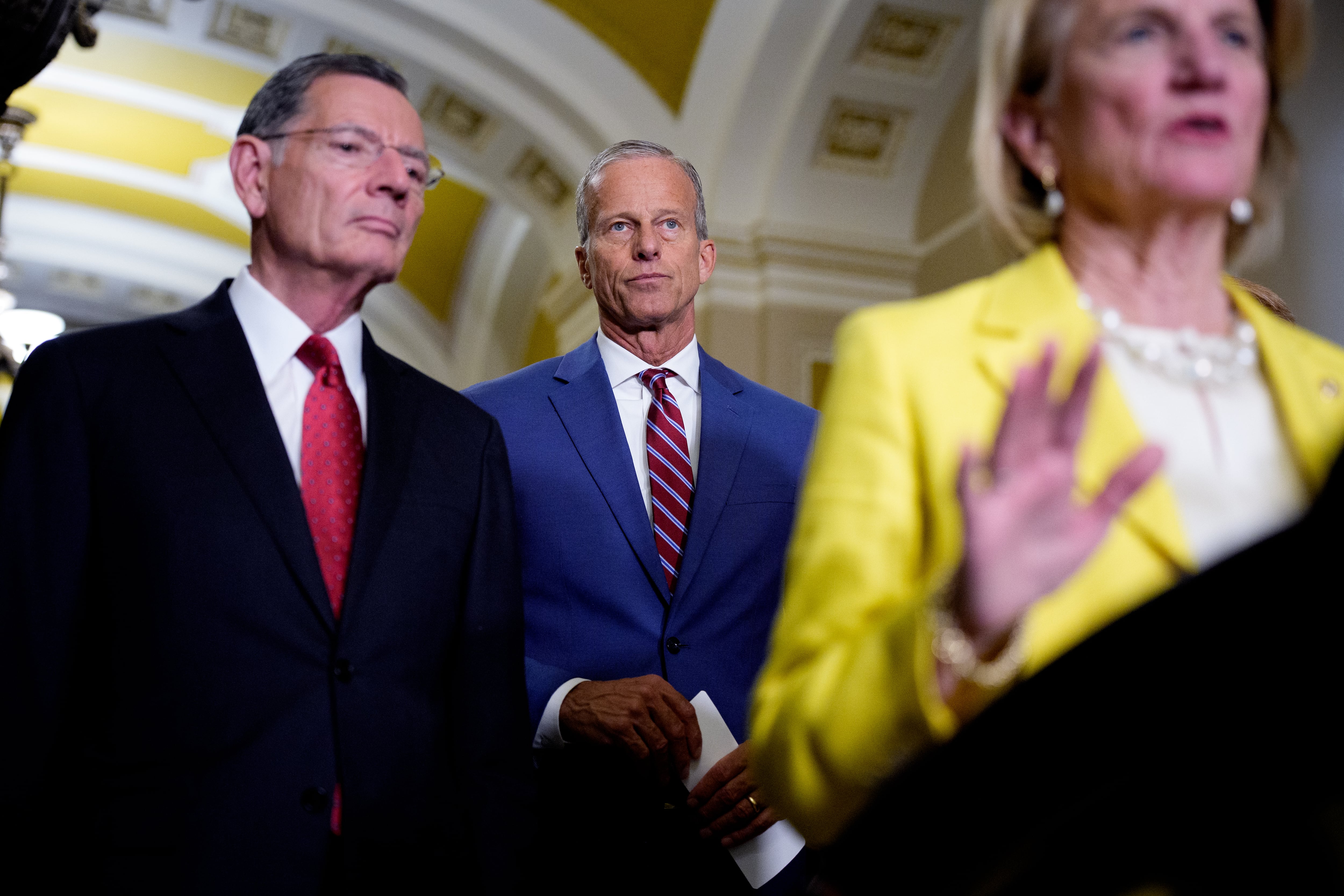Public health, explained: Sign up to receive Healthbeat’s free national newsletter here.
Nearly two-thirds of adults oppose President Donald Trump’s “One Big Beautiful Bill” approved in May by the House of Representatives, according to a KFF poll released Tuesday.
And even Trump’s most ardent supporters like the legislation a lot less when they learn how it would cut federal spending on health programs, the poll shows.
The KFF poll found that about 61% of Republicans and Republican-leaning independents — and 72% of the subset who identify with Trump’s “Make American Great Again” movement — support the bill, which would extend many of Trump’s 2017 tax cuts while reducing spending on domestic programs, including cutting billions from Medicaid.
But when pollsters told survey respondents about the bill’s consequences for health care, opposition grew, including among MAGA supporters.
For example, after being told that the bill would decrease funding for local hospitals and increase the number of people without health insurance, support among those who back MAGA dropped more than 20 percentage points — resulting in less than half the group still backing the bill.
Ashley Kirzinger, KFF’s director of survey methodology and associate director of its Public Opinion and Survey Research program, said it’s no surprise polling shows that party affiliation affects how most of the public views the bill.
“But the poll shows that support, even among MAGA supporters, drops drastically once the public hears more about how the bill could impact local hospitals and reduce Medicaid coverage,” she said.
“This shows how the partisan lens wears slightly when the public learns more about how the legislation could affect them and their families.”
KFF is a health policy research, polling, and news organization that includes KFF Health News.
House Speaker Mike Johnson, a Louisiana Republican who won passage of the legislation in the chamber he controls by a single vote on May 22, has insisted the bill would not “cut Medicaid.” The nonpartisan Congressional Budget Office, which calculates the effects of legislation on the nation’s deficits and debt, says the measure would reduce federal spending on Medicaid by $793 billion over 10 years, resulting in nearly 8 million more people becoming uninsured.
The bill is encountering strident opposition from the health industry, most notably hospitals that expect to see large cuts in funding as a result of millions of people losing Medicaid coverage. The House-passed legislation would increase the frequency of eligibility checks and require that most nondisabled adults regularly prove they are working, studying, or volunteering at least 80 hours a month to keep their coverage.
“This is common sense,” Johnson said May 25 on the CBS News program “Face the Nation.” “And when the American people understand what we are doing here, they applaud it.”
Critics say the bill marks the latest attempt by Republicans to roll back the Affordable Care Act.
As the Senate moves toward a possible vote on its version of the legislation before Independence Day, the KFF poll shows Medicaid and the ACA are more popular than ever.
About 83% of adults support Medicaid, including large majorities of Democrats (93%), independents (83%), and Republicans (74%). That’s up from 77% in January, with the poll finding the biggest jump in favorability among Republicans.
Medicaid and the related Children’s Health Insurance Program cover about 78 million people who are disabled or have low incomes.
About two-thirds of adults hold favorable views of the ACA, the most since the law’s enactment in 2010, as recorded in KFF polls. The law has only been consistently popular with a majority of adults since about 2021.
Views of the ACA remain split along partisan lines, with most Republicans (63%) holding unfavorable views and most Democrats (94%) and independents (71%) viewing it favorably.
The poll found other indications that the public may not understand key provisions of the GOP bill, including its work requirements.
The poll finds two-thirds of the public — including the vast majority of Republicans (88%) and MAGA supporters (93%) and half (51%) of Democrats — initially support requiring nearly all adults on Medicaid to prove they are working or looking for work, in school, or doing community service, with exceptions such as for caregivers and people with disabilities.
However, attitudes toward this provision shifted dramatically when respondents were presented with more information.
For example, when told most adults with Medicaid are already working or unable to work, and that those individuals could lose coverage due to the challenge of documenting it, about half of supporters changed their view, resulting in nearly two-thirds of adults opposing Medicaid work requirements and about a third supporting them.
The poll of 1,321 adults was conducted online and by telephone June 4-8 and has a margin of error of plus or minus 3 percentage points.
This story was originally published by KFF Health News, Healthbeat’s national reporting partner.







